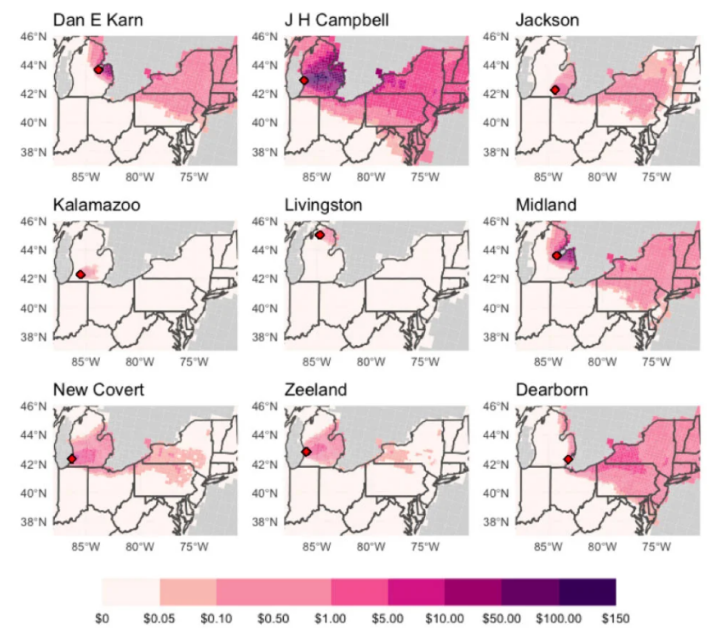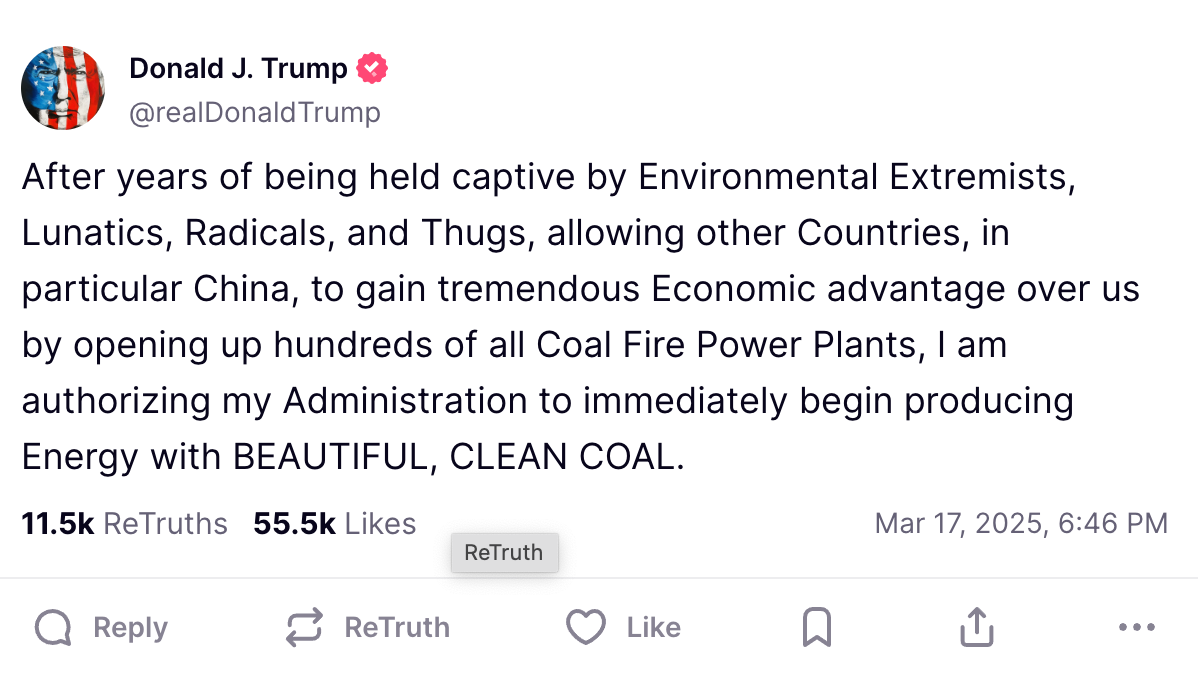June 23, 2025
Midwesterners Shouldn’t Have to Pay to Keep J.H. Campbell Coal Plant Running
The J.H. Campbell coal plant in West Olive, Michigan, is uneconomic and unnecessary
By Nick Wallace, Senior Associate Attorney
On May 23, 2025, the Department of Energy (DOE) issued an order under Section 202(c) of the Federal Power Act instructing Consumers Energy to continue operating the J.H. Campbell coal plant in West Olive, Michigan despite its long-planned retirement.
The company had already wound down operations at Campbell: its coal supply was depleted, its coal transport railcars sold, and its workers reassigned. The plant was set to close on May 31.
This DOE Order will impose tens of millions of dollars of costs and health impacts on Midwesterners who will not benefit from Campbell’s continued operation.
Unlike past invocations of DOE’s emergency authority under the Federal Power Act, neither the plant owner (Consumers Energy) nor the grid operator tasked with maintaining reliability (the Midcontinent Independent System Operator or MISO), requested that Campbell remain in service. In fact, MISO, Consumers Energy, and the Michigan Public Service Commission (MPSC) have each concluded that the Consumers Energy service territory has adequate power supplies for the summer.
Disregarding those findings, the order declares an “energy emergency” requiring the continued operation of the Campbell Plant – and ratepayers across Michigan and the Midwest could be stuck with the bill. As discussed below, the Order places politics above the best interests of Midwest ratepayers, increasing customer bills in order to advance the President’s pro-coal agenda.
It is entirely possible that ratepayers in Michigan and other Midwestern states will pay more than $1 million per day to keep the Campbell plant running this summer. Operational costs aside, public health experts have estimated that pollution from Campbell causes $389-$879 million in health impact costs annually ($95-$216 million over a 90-day period).

Per capita health impacts in dollars per 100 people, with plant locations marked in red.
In response to the Order, Consumers Energy asked the Federal Energy Regulatory Commission (FERC) to allocate costs of the Campbell Plant to ratepayers across parts of eleven Midwestern states: Michigan, Indiana, Kentucky, Illinois, Missouri, Iowa, Wisconsin, Minnesota, North Dakota, South Dakota, and Montana.
The DOE order has undoubtedly placed Consumers in a difficult position by requiring the utility to incur costs for a plant it no longer wants to run. But requiring families and businesses in Midwest states to cover Campbell’s costs simply shifts the burden of DOE’s unlawful order.
That’s why ELPC, along with fifteen other environmental and consumer advocacy groups filed a response with FERC last week opposing this unjust tax on Midwest families.
No energy emergency, no justification
This order is the latest in a line of what one legal scholar called “utterly bogus emergencies” that the Trump administration has declared across a wide range of issues. Relying on these declarations, the Administration invoked statutes to exercise rarely used emergency powers. Courts have already begun to overturn the Administration’s legal excesses.
Like the Administration’s other emergency orders, the Campbell Order appears primarily motivated by politics, not facts. In a March 17, 2025, Truth Social post, the President stated:

Shortly thereafter, the President issued an executive order aimed at “Reinvigorating America’s Beautiful Clean Coal Industry,” which sought to increase national coal production. The Campbell Order likewise promotes the coal industry by extending the life of an uneconomic coal plant at the expense of ratepayers.
The Midwest already paid for its power
The Department of Energy does not manage the nation’s grid or play any formal role in making sure there’s enough power to meet consumer demand. That responsibility largely falls to state regulators like the Michigan Public Service Commission, which requires companies like Consumers Energy to file Integrated Resource Plans (IRPs) detailing how they will meet demand in coming years. The Michigan Public Service Commission approved the Campbell decommissioning years ago because Consumers Energy planned to replace Campbell’s power with a mix of oil, gas, renewable resources and storage.
The MPSC has clearly stated that Consumers has already obtained sufficient power for this summer, reporting:
“We currently produce more energy in Michigan than needed. As a result, there is no existing energy emergency in Michigan or MISO.”
— Dan Scripps, Chair, Michigan Public Service Commission
As such, Consumers’ customers in Michigan and the Midwest will not benefit from the additional power Campbell may provide over the summer, and therefore, should not be on the hook for its costs. Moreover, continued operation of the Campbell Plant will disproportionately harm ratepayers in Michigan by exposing them to air pollution from the aging plant, resulting in millions of dollars of health impacts.
The U.S. Department of Energy’s Order, which essentially commandeers the Campbell plant, is legally questionable, economically disastrous, and morally indefensible. Consumers Energy does not want to run the plant. MISO says that the plant is not needed. The MPSC confirms that there is no energy emergency. Yet Midwestern families and businesses are now expected to pay the price for this political stunt.
While Consumers Energy is entitled to seek just compensation for continuing to operate the Campbell plant at a loss, the law does not require Midwestern families and businesses provide that compensation.
FERC should reject this unjust tax on Midwest families who are already struggling with rising electricity costs. If the Trump Administration insists on running Campbell to advance its coal-first agenda, it should figure out a way to pay for that decision – not the people of Michigan and the Midwest.

